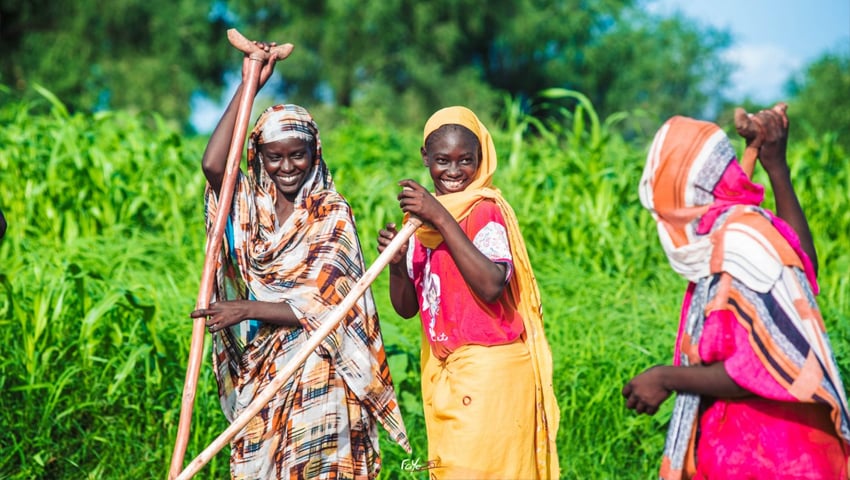The war that started in April 2023 between the Sudanese Armed Forces (SAF) and the Rapid Support Forces (RSF) has plunged the entire country into a state of conflict with no areas unaffected. The food systems including primary production have been significantly hit both directly and indirectly, contributing to a rapidly deteriorating food security situation with a high risk of widespread famine.
The scale of food needs is already far outstripping the capacity for aid actors to respond due to constraints including funding, access, and security. However, with ongoing conflict, the primary production of agropastoral livelihoods is likely to further deteriorate, leading to a cascading crisis. The aid sector response to support primary production is vital and needs to be strategic and holistic.
The Conflict Sensitivity Facility (CSF) and USAID/TEPS have been collaborating with SoilWatch to analyse food system impacts and recommendations for aid sector actors. The upcoming analysis will explore the differential impacts of the conflict on the main agropastoral production modalities – traditional smallholder, commercial semi-mechanised, irrigated, and pastoral – and provide a strategy with recommendations to improve production, food security, and conflict resilience.
The strategy lays the foundation for not only immediate support but also longer-term resilience, recovery, and development. The agricultural system that existed prior to the conflict was highly centralised and led to persistent rural poverty, diminishing yields, environmental degradation, and resource-based conflict. The opportunity for supporting a better system – one based on decentralisation, self-sufficiency, and financial, social, environmental sustainability – is available and work towards it can and should start now.
Eero Wahlstedt, Co-Founder and Managing Director at SoilWatch, said, “The conflict has disrupted the centralised structures that the food systems relied on and the outlook is extremely grim with likely over a million people dying by the next harvest season. Meanwhile, international support systems such as aid are being gutted by many donor countries and the wars in Ukraine and Gaza compete for both attention and funds. But things can get even worse if the food systems do not recover.
“This is what we’ve been concentrating on at Soilwatch with the Conflict Sensitivity Facility (CSF) and USAID/TEPS. How to support immediate agricultural production? How to simultaneously help farmers and communities in the medium and long term to reach sustainability and development? How to build resilience against shocks, whether conflict or environmental?
“The main realisation that I’ve had working on this is that many of the most important priorities cut across sustainability and resilience questions regardless of what shocks or chronic issues are explored. Local self-sufficiency of key inputs, value addition, regenerative practices, storage, and functional markets.”
The key recommendations
Rainfed traditional – The primary priority is to support self-sufficient community systems for key inputs, processing, and storage, to reduce dependence on centralised and market-based systems, as well as ensure future sustainability
Rainfed semi-mechanised – The primary priority is to incentivise cultivation of food security crops by large-scale farmers to leverage aid sector resources into substantial increased production, as well as improve environmental sustainability
Irrigated – The primary priority is to maximise food security crop production and improve sustainability
Pastoral – The primary priority is to maintain livestock mobility, access to resources, improve environmental sustainability, and mitigate farmer-herder conflict pressure
